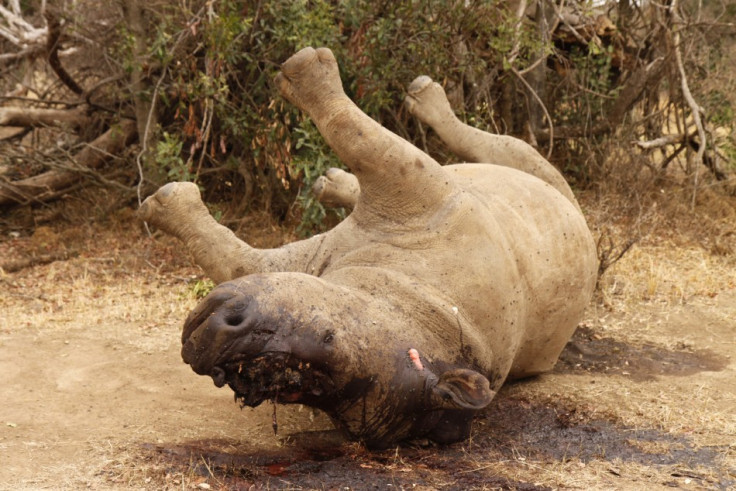Rhino Horns Injected with Poison to Deter Poachers

Conservationists have attempted injecting toxins into rhino horns to thwart poachers in South Africa.
Rhino poaching is a big business that has endangered the species as the animals are regularly slaughtered for their horns, which are then used in folk remedies.
In the ongoing war against the poachers, conservationists tried tranquillising a rhino, drilling into its horn and injecting an anti-tick pesticide that is poisonous to humans.
But during a press demonstration of the technique in a reserve in Kromdraai, near Johannesburg, the rhino died after being sedated.
It is thought that the elderly animal had a heart attack unrelated to the injection. Dr Joseph Okori, head of the World Wildlife Fund's African rhino programme, described it as a "sacrifical lamb in the desperate bid to seek alternatives to end poaching".
"It shows how serious the crisis is that we have to do this," Robi Beninca, a leader of Spots, a company that works to protect endangered animals, told the Global Post. "It highlights how serious it is that we have to go and risk healthy animals."
This drastic attempt to come up with a new strategy to fight poaching displays the scale of the struggle that the authorities are facing, as rhino horn is smuggled via increasingly hi-tech means.
Tom Milliken, director of Traffic wildlife trade monitoring network, revealed on NBC the highly organised network of rhino horn smugglers.
"Most rhino horns are leaving Africa and being couriered to Asia. Some of those couriers may actually be airline personnel," he said.
"Let's say a major airline is coming in on Thursday and will leave by Friday. To those who are the middlemen in Pretoria and Johannesburg the word goes out - I need rhino horn by Thursday.
"The gun is given to poachers on the border of Kruger National Park and they go in to get the rhino. As soon as they kill that animal they are on the cellphone saying 'I've got the animal, I've got the horn and I'm walking in this direction and will be on this road in a hour'.
"There are two cars that meet them on that road. The horn goes one way, the poachers go another. That horn is then whisked to Johannesburg. It changes hands several times until it's in the baggage of someone who is getting on a flight and within 24 hours it's in a market in Asia."
It is understood that a full-sized rhino horn can fetch up to $500,00 (£310,000) in Asia. Research into the injection programme is continuing.
© Copyright IBTimes 2025. All rights reserved.





















